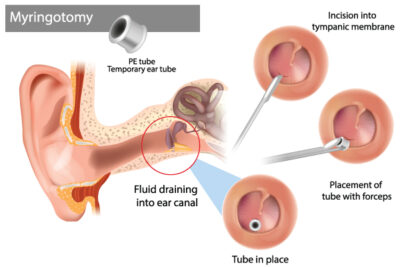Tongue-Tie for Children in Atlanta
What Is Tongue Tie?
A tongue tie occurs when a strip of tissue connects the underside of the tongue to the floor of the mouth, limiting its range of motion. In most cases, the tongue can extend past the lower lip and reach the roof of the mouth (hard palate).
The tissue connecting the tongue is known as the frenulum.
What Happens in Tongue Tie?
Tongue tie, also referred to as ankyloglossia, develops before birth. Typically, during fetal development, the tissue connecting the front of the tongue to the mouth’s floor dissipates while the back remains attached.
At times, the frenulum may be unusually short or tight, anchoring the tongue’s tip to the floor of the mouth. The severity can vary, from a small tissue fold holding the tongue’s tip to a complete attachment of the tongue’s base to the mouth’s floor, known as anterior tongue tie. Posterior tongue tie for children in Atlanta can occur when a dense frenulum near the tongue’s base limits its movement.
What Causes Tongue Ties?
The exact cause of tongue tie remains unknown, though it sometimes appears to be hereditary and is more frequently observed in boys than girls.
What Are the Signs & Symptoms of Tongue Tie?
The impact of tongue ties on children in Atlanta differs with age. Infants may struggle with breastfeeding due to difficulty latching onto the breast properly. Signs include a weak latch, easily losing the latch, biting or gumming the nipple, and causing pain or injury to breastfeeding mothers.
Older children might experience speech difficulties and may not be able to extend their tongues beyond their teeth.
Additional issues in children with tongue tie may include:
- Cuts beneath the tongue if the frenulum gets trapped between teeth
- Tooth decay due to inability to clean food off teeth with the tongue
Tongue ties can pose challenges for children in:
- Articulating words or making specific sounds (d, l, t, th, etc.)
- Licking their lips
- Performing actions such as licking an ice cream cone
- Playing wind instruments
How Is Tongue Tie Diagnosed?
To diagnose tongue tie, a doctor will evaluate the tongue’s mobility and listen to the child’s speech.
How Is Tongue Tie Treated?
If a child is symptom-free and experiences no issues from tongue tie, treatment is unnecessary. The frenulum may naturally stretch as the child grows, allowing for greater tongue mobility and clearer speech.
For infants with breastfeeding challenges, the healthcare team will attempt non-surgical solutions. The team may comprise:
- The child’s pediatrician
- An ear, nose, and throat specialist (ENT)
- A lactation consultant
- A speech-language therapist
If surgical intervention is required, the ENT can perform:
- Frenotomy or Frenulectomy: This involves cutting the frenulum with a scalpel, laser, or scissors. It’s a straightforward and quick procedure often done without anesthesia in infants under three months because the area has minimal nerve endings or blood vessels. It can be safely performed in an outpatient setting.
- Frenuloplasty: For older children, or if the frenulum is too thick for a simple snip, surgery under general anesthesia might be necessary. Stitches used during the procedure will dissolve over time.
What Else Should I Know?
While tongue tie doesn’t prevent speech, it can affect clarity. A child’s vocabulary might be suitable for their age, yet their speech could be hard to understand. Our experienced team, serving Marietta, Duluth, and Alpharetta, provides comprehensive care and treatment options.
A speech-language pathologist can assist a child with speech clarity issues. Sometimes, the problem may resolve naturally as the child matures. In select cases, surgery may be the optimal solution.
Symptoms can fluctuate as children grow. A tongue tie that wasn’t problematic in early childhood might become an issue for older children or teenagers wanting to play wind instruments or feeling self-conscious about their inability to stick out their tongue.
Tongue Tie for Children in Atlanta: Get Expert Diagnosis and Treatment
Tongue tie, or ankyloglossia, can impact a child’s ability to speak, eat, and engage in certain activities. If you’re noticing symptoms in your child, consulting with a pediatric ENT in Atlanta can help determine the best course of action. Contact us today to learn more or schedule an appointment for evaluation and treatment options.


